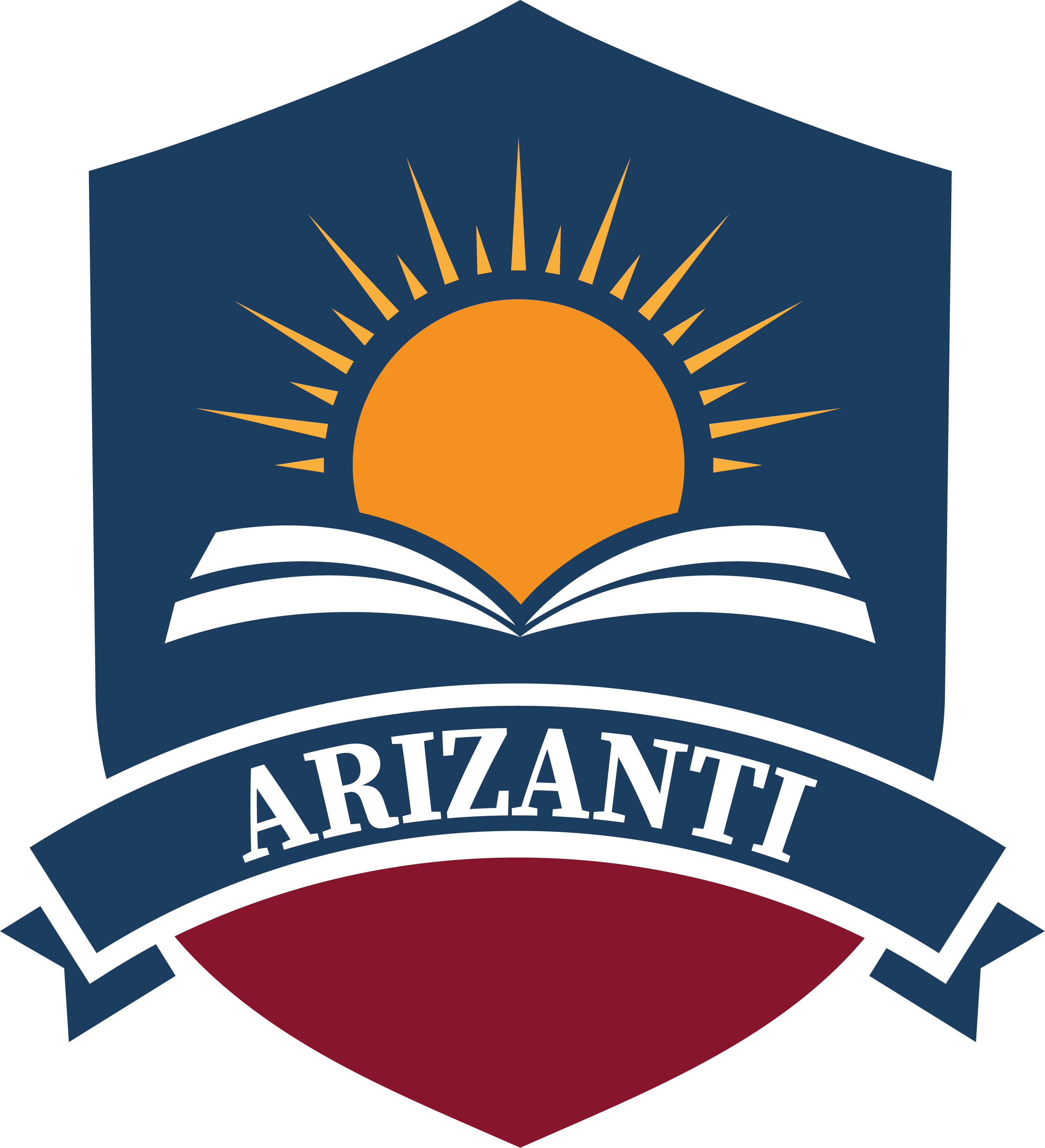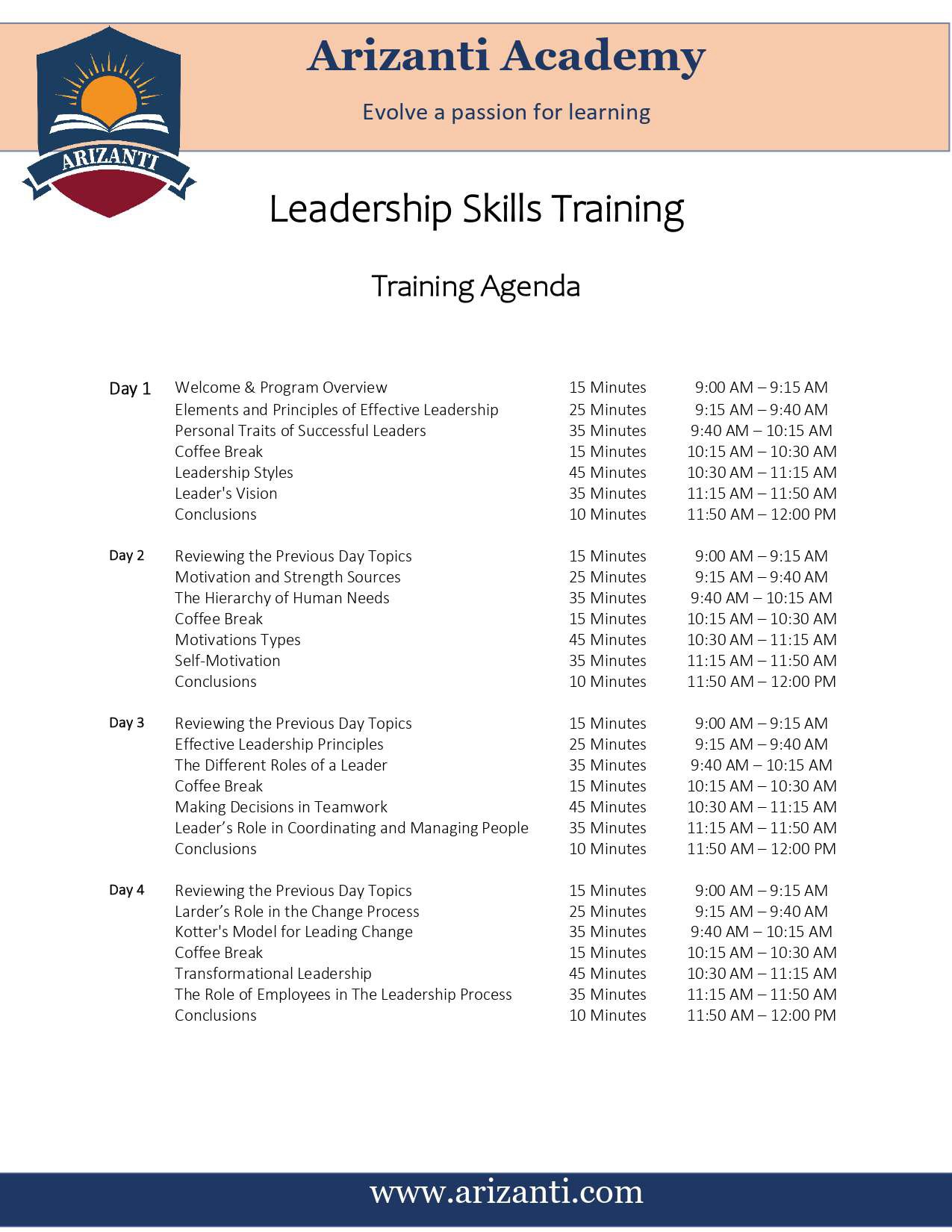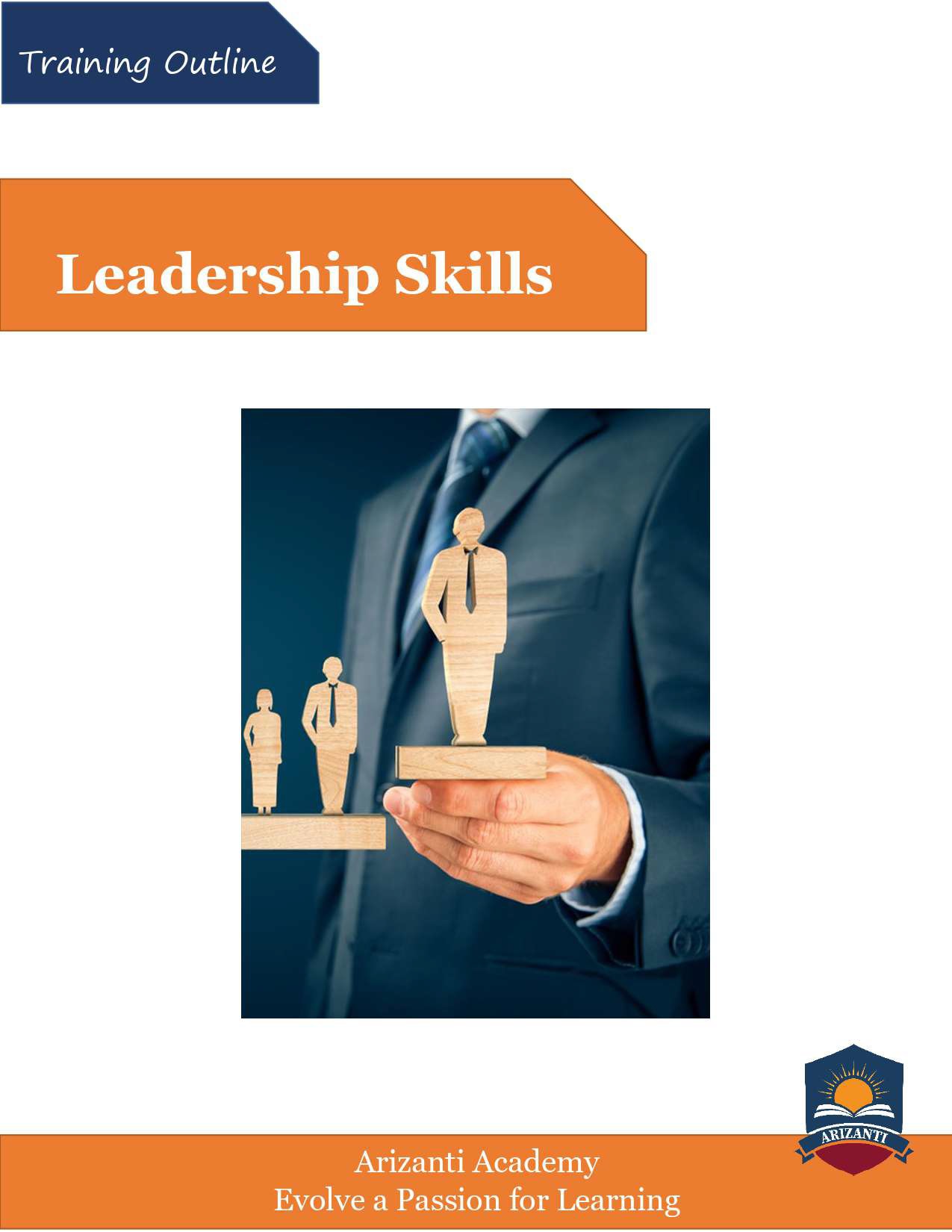By the end of this training, we expect the participants to have a deeper understanding of the importance of Leadership skills through:
- Foundations and concepts of leadership and management.
- Attributes and behaviors of a successful leader.
- Sources of power and the hierarchy of human needs.
- How to motivate employees.
- The role of the leader in developing work teams.
- The role of the leader in the change process.
Training Curriculum:
The purpose of this session is to introduce and explain the subject of leadership elements, principles of successful leadership and the personality traits of a successful leader, his qualities and behaviors, which include emotional intelligence, honesty, transparency, the ability to inspire, focus, nerves possess, punctuality, and prioritization among others. The program also presents the main leadership styles and their relationship to work efficiency and relationships within the team. The session will include conducting a number of self-assessments for the participants to help them assess their current situation and compare it to the situations and stages of leadership requirements addressed in the training.
At the end of this day the trainees were able to have a better understanding of:- The most important elements and principles of effective leadership.
- Personal traits of a successful leader.
- Self-evaluation.
- Leadership Styles (Goleman & Blanchard).
- Leader's vision.
The purpose of this session is to help the participants learn the methods of motivation, internal motivation, sources of strength, the hierarchy of human needs, and how to exploit and use all of these things to raise the level of productivity within the organization and lead projects in a better way by setting the desired goals, designing jobs to motivate employees, managing expectations and achieving justice and equality among the staff.
At the end of this day the trainees were able to have a better understanding of:- Learn the basics of employee motivation.
- Motivation and strength sources.
- Hierarchy of human needs and understanding the different needs of employees.
- Types of motivation.
- Self-motivation.
The purpose of this session is to help participants to know the skills of successful leaders in recognizing and applying the principles of successful leadership, among which is the ability to resolve conflicts between employees and arbitrate between them justly. Leadership skills required in the different roles of a leader, how to lead work groups in our society, make decisions in teams, group thinking, and the role of a leader in combating group decision biases, as well as peer pressure and social dependence.
At the end of this day the trainees were able to have a better understanding of:- Effective leadership principles.
- The different roles of a leader.
- Making decisions in teamwork.
- The role of the leader in coordinating and managing people.
The purpose of this session is to help the trainees to know the foundations and modern concepts in leadership and management, such as leading change, leadership communication, etc., the role of the leader in dealing with resistance to change, transformational leadership, honest leadership and change in social culture, and the most important qualities and behaviors that a successful leader must possess in order to become an inspiring leader, explaining the elements of leadership, successful leadership skills, how to motivate in leadership, and the role of employees in the leadership process.
At the end of this day the trainees were able to have a better understanding of:- The role of the leader in the change process.
- Kotter's model for leading change.
- Transformational leadership, honest leadership, and the qualities of an inspiring leader.
- The role of employees in the leadership process.
Who should attend?
This program is necessary for anyone who wants to acquire the skills that make him able to lead others, whether within small or large work groups in large companies and institutions. Anyone who wishes to influence the lives of others by motivating and directing them in a right way to achieve personal and public goals.
A: Private training courses can be delivered in its location in (Villa No. R3/169, New Azadi-Atconz, Erbil/KRI) or outside venue booked by Arizanti Academy when there would be a need, or at your business premises.
Q: In which language the trainings are delivered?A: Our programs can be delivered in Kurdish, Arabic or English.
Q: What are your ideal training schedules?A: Half-day session: (09:00 am to 12:00 pm) or (2:00 pm to 5:00 pm) or to suit. Full-day session: (09:30 am to 15:30 pm) or to suit.
Our trainers are not only the most qualified professionally, but they are also the most capable of delivering information to the trainees. We rely on their selection, in addition to their high scientific specializations, on their experiences and personal abilities in implementing training programs of high value and positive returns, so that the training process does not become a mere waste of time and effort, but rather a real development of capabilities, skills and practical benefit acquired by our clients and their staff and practiced virtually to improve their overall performance.
In Arizanti Academy, we believe that accurate evaluation of training programs, based on scientific foundations and well-thought-out criteria, is the best way to achieve the desired goals of training, achieve maximum benefit from the program, and provide trainees with scientific knowledge, experience and practical skills. Therefore, we have built our evaluation systems based on accreditation and compatibility with a set of evaluation systems and international standards, where we rely in our work on: -
- Evaluation of the training program on the morning of the second day (if the program lasts for more than one day) to avoid any shortcomings in the program, and to achieve the objectives of the participants as groups and individuals.
- Participants' evaluation of the training material, the trainer, the place of training, training services and coordination on the last day of the program (this report is analyzed and the results are sent with the original evaluation sheets to the client with the final report).



